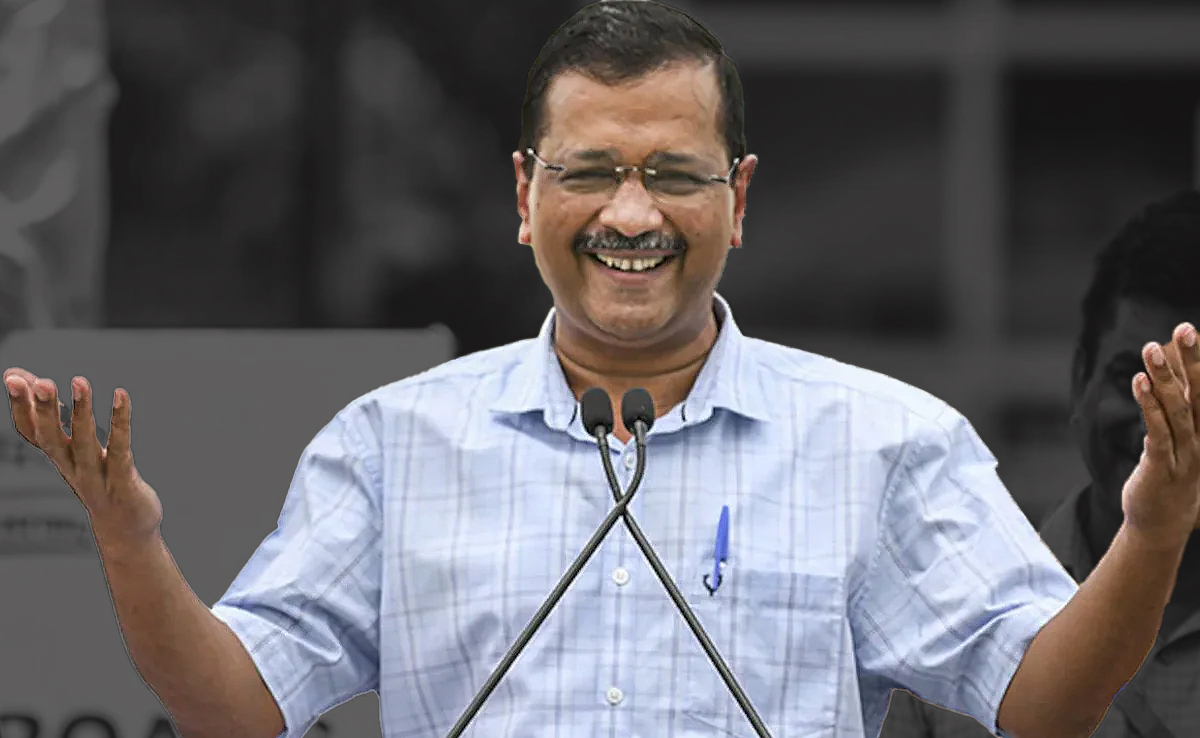Arvind Kejriwal: Political Innovator Face of Anti-Corruption

Arvind Kejriwal, a former civil servant turned politician, has made a significant impact on Indian politics as the founder of the Aam Aadmi Party (AAP). Born on August 16, 1968, in Haryana, India, Kejriwal graduated from the prestigious Indian Institute of Technology Kharagpur, where he studied mechanical engineering. After a brief stint in the corporate world, he joined the Indian Revenue Service in 1995.

The Genesis of a Political Career
Kejriwal’s political career began not with an election but with his activism. Deeply influenced by the work of social reformers like Mother Teresa and his direct experiences in the Indian civil services, he became increasingly focused on combating corruption. This passion for transparency and accountability led him to found the Public Cause Research Foundation and become a key figure in the 2011 Indian anti-corruption movement, a pivotal moment that would set the stage for his entry into politics.
Rise of the Aam Aadmi Party
In 2012, disillusioned with the government’s response to the anti-corruption movement, Kejriwal founded the Aam Aadmi Party (AAP). The party’s name, meaning “Common Man’s Party,” reflects its commitment to represent the ordinary citizen and tackle issues such as corruption, education, and health care. AAP’s approach was revolutionary in Indian politics, emphasizing grassroots campaigning and transparency in campaign financing.
Breakthrough in Delhi
Kejriwal’s political acumen was proven when he won his first term as Chief Minister of Delhi in December 2013. Despite resigning after 49 days due to a deadlock with other political parties over an anti-corruption bill, his party’s focus on common issues and clean governance resonated with the public. In 2015, AAP won a landslide victory in the Delhi Assembly elections, securing 67 of the 70 seats—an unprecedented feat that confirmed Kejriwal’s leadership and his party’s political strategies.
Governance and Reforms
Under Kejriwal’s leadership, the Delhi government has implemented several key reforms, particularly in sectors like education and health. His government has doubled the education budget, emphasizing improving school infrastructure, teacher training, and learning outcomes. In health care, Kejriwal introduced the Mohalla Clinic initiative, a network of neighborhood clinics providing free primary care, which has been hailed as a model for other states.

Challenges and Controversies
Kejriwal’s career, however, has not been without controversy. His confrontational style and the frequent clashes with the central government have led to a complex relationship with the broader powers in the Indian political landscape. His governance style has been critiqued for being too centralized around his persona.
Looking Ahead Arvind Kejriwal
As Kejriwal continues to govern Delhi and expand AAP’s influence in other states, his role in Indian politics remains significant. With his focus on governance over politics and a clean image, he represents a new type of leadership in India’s political sphere. Whether he can translate his success in Delhi to a broader national stage remains to be seen.
Arvind Kejriwal’s journey from a civil servant to a chief minister and a national political figure is a testament to the changing dynamics of Indian politics, where transparency, accountability, and a focus on basic governance can resonate deeply with citizens, potentially altering the traditional political equations. His story continues to unfold, as he and his party strive to make a lasting impact on India’s political fabric.
Arvind Kejriwal: Strengths and Weaknesses of a Reformist Leader
Arvind Kejriwal, the Chief Minister of Delhi and the founder of the Aam Aadmi Party (AAP), has emerged as a distinctive figure in Indian politics, championing anti-corruption measures and governance goltogel reforms. His career, marked by both significant achievements and notable controversies, offers a clear view of his strengths and weaknesses as a leader.

Strengths Arvind Kejriwal
1. Commitment to Anti-Corruption: Arvind Kejriwal most significant strength is his unwavering commitment to fighting corruption. His background in civil service and his role in the 2011 Indian anti-corruption movement have established him as a leader passionate about transparency and integrity in government operations.
2. Innovative Governance: Arvind Kejriwal has implemented several innovative governance reforms, especially in education and healthcare. His government’s efforts to transform public schools in Delhi and the introduction of Mohalla Clinics, which provide free primary healthcare, are often cited as models for other states.
3. Populist Connect: Kejriwal has a strong connection with the common man, often reflecting the concerns of the everyday citizen in his policies and his party’s ethos. This populist approach has helped him maintain a robust political base that feels genuinely represented.
4. Media Savviness: As a politician in the modern era, Kejriwal understands the power of media. His ability to use social media and traditional media to communicate directly with the public and to mobilize support has been a critical element of his political strategy.
Weaknesses Arvind Kejriwal
1. Confrontational Politics: One of the major criticisms against Kejriwal is his confrontational style of politics. His tenure as Chief Minister has been marked by frequent conflicts with the central government and other political entities, which sometimes hampers effective governance and policy implementation.
2. Accusations of Populism: While his populist measures are popular, critics argue that some of Kejriwal’s policies are more about gaining political mileage than sustainable governance. This has raised concerns about the long-term viability and financial sustainability of these initiatives.
3. Centralized Decision-Making: Critics also point out that Kejriwal’s leadership style is highly centralized. Decision-making within AAP often appears to be top-down, with Kejriwal at the center, which may limit internal party democracy and the development of other leadership within the party.
4. Handling of Internal Dissent: AAP has witnessed several internal conflicts and the exit of key members since its inception. Kejriwal’s handling of dissent and conflict within the party has sometimes been viewed as harsh and dismissive, which could impact the party’s internal cohesion over time.
Conclusion Arvind Kejriwal
Arvind Kejriwal remains a polarizing figure in Indian politics. His strengths, like his focus on governance and anti-corruption, are as significant as his weaknesses, such as his confrontational style and centralization of power. As Delhi’s Chief Minister and a leader with national aspirations, how he addresses these challenges will significantly influence both his and AAP’s future political trajectory. Kejriwal’s journey continues to be watched closely by supporters and critics alike, serving as a case study in the complexities of leadership in a vibrant democracy like India.
Read More Article About “Blinken’s Urgent Challenges: Navigating Crucial Tensions“




Leave a Comment